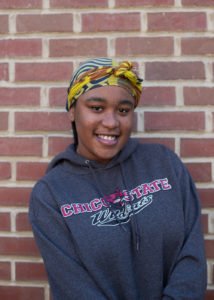
The transition from high school to college can be a challenging and overwhelming process, especially coming straight out of high school. Not knowing any information or what steps to take can be a problem. Students who attend different schools have different degrees of preparation, and some come out of school without understanding the concept and importance of applying for college.
In my experience, I feel some students go to find jobs directly after high school because applying to and enrolling in college can be such an overwhelming experience. Financially, students may feel tuition is a barrier and not know how to navigate financial aid.
It’s also better to have a support system behind you in this process, even if they are only able to provide limited help. Some simple support could be meeting with a counselor, asking for advice from any family members or friends who work in higher education or your field of interest, or taking a counseling-based class.
High schools don’t really tell you what to keep in mind when entering college, it’s only about the colleges coming to the school and telling you about the events, the parties, etc. They broadcast the fun side of college life but don’t give a heads-up about how much it costs to pay for textbooks, tuition, and student loans. They won’t talk to you about how to fill out the FAFSA.
While enrolling at Laney College, the challenges I faced included being intimidated by the financial aid portion. Although I wasn’t alone in this process, it was a bit of hassle taking on that process because we had to make sure everything was correct and up-to-date. Luckily, I did have a mentor through the process who works with young adults. She attended church with me, and she was very helpful. She helped lead me in the right direction in terms of classes I needed. Her help eased the stress of the transition a little bit.
This situation is important for our high school youth who, like me, have no idea of how to transition to higher education and would love the help. Some students may not have a home to go to or not have easy access to a computer or other resources. Purchasing an introductory statistics textbook cost me almost to two hundred dollars. If it was more affordable, it would have lessened my stress. I went without a textbook for half of the semester because I couldn’t afford it.
It’s also better to have a support system behind you in this process, even if they are only able to provide limited help. Some simple support could be meeting with a counselor, asking for advice from any family members or friends who work in higher education or your field of interest, or taking a counseling-based class.
I spoke with Laney counselor Cynthia Haro, and she gave some good tips surrounding this problem. Although she was new to campus herself, she spoke to me about the difficulty of transitioning from high school to college and offered advice on how to navigate in those times.
Haro recommended college counseling success classes. In those classes, instructors provide useful tips and ways about passing your first semester in a college course. In the time that I’ve been at Laney, I still don’t have a clue who my counselor is. I think the best thing to do is make sure you have a counselor assigned, or ask for one. Trust me, it’s a sticky situation when you are not in reach of a counselor.
I also spoke with Laney Director of Student Activities and Campus Life Gary Albury. He was a great go-to for this topic: very welcoming and very easy to talk to. We spoke on various ways that even enrolling or applying to a college is difficult.
Albury agreed that “Trying to navigate the whole process of paying for college, filling out the different forms, even applying for college or like CCC apply, it can be confusing.”

The hassle of filling out forms plays a big part when transitioning to college. It did for me, because I filled out applications for many universities. My high school counselors suggested that we apply to larger universities, which was overwhelming. Some of the colleges weren’t local, so since I still live at home with family, I felt better about applying to some of the colleges that were nearest to me.
“That’s why it’s important that you, you know, meet people, ask questions, your professors. If there’s something you don’t know, ask, and if they don’t know it, they can reach out to folks that may have the answer for you,” Albury said.
That’s something I would’ve done differently, knowing what I know now. I didn’t ask many questions as I went through the process of applying for and enrolling in college. For any future college students, make sure to ask questions. No question is a dumb question! If you are curious or confused, ask as many questions as possible.
The struggle of transitioning from high school to enrolling in college is very difficult, and I thought I’d share some of the experiences I had and some tips I’ve received during that time.
If you are attending Laney, I highly recommend seeking out Gary Albury. He works with all campus clubs, including student government, and you can learn about different resources that students have on campus.
Everybody’s high school to college transition period is different, but I’m hoping that the next generation of college students can learn from these tips and my experience.


























